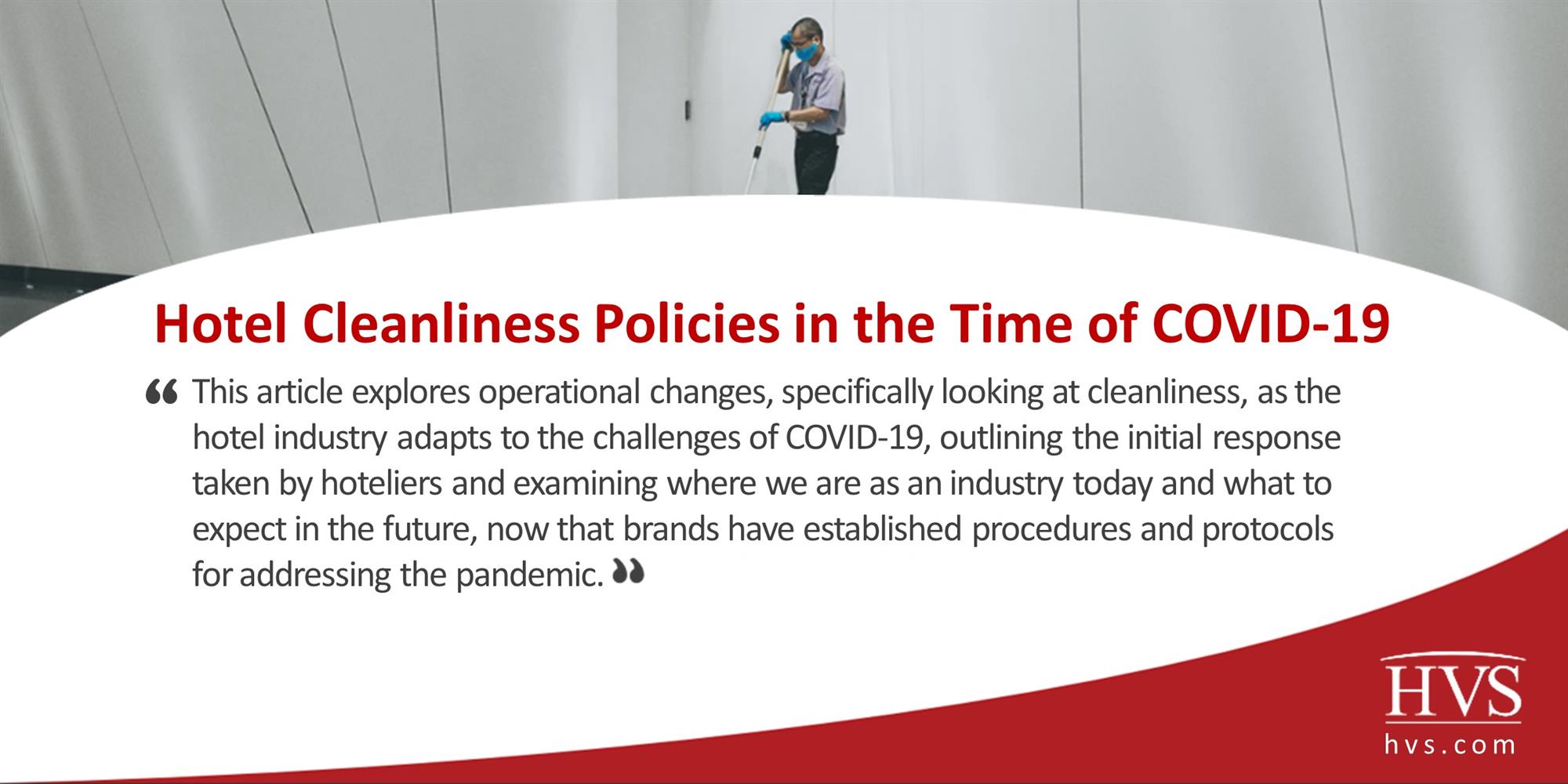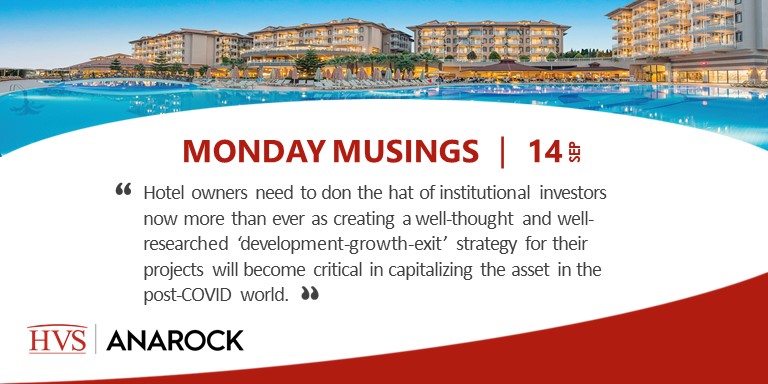It is inevitable – many hotels will go into receivership and/or foreclosure in the coming months. Some owners cannot afford to fight any longer, some lenders cannot kick the can down the road any longer, or any number of other reasons will start them down this path.
Industry Insights
We have written thousands of articles about all aspects of hospitality, including valuations, investing, lending, operations, asset management, and much more.
Critical Components of an Effective “Order to Appoint a Receiver” – From the Lender’s Perspective
It is inevitable – many hotels will go into receivership and/or foreclosure in the coming months. Some owners cannot afford to fight any longer, some lenders cannot kick the can down the road any longer, or any number of other reasons will start them down this path.
Hotel Cleanliness Policies in the Time of COVID-19
This article explores operational changes, specifically looking at cleanliness, as the hotel industry adapts to the challenges of COVID-19, outlining the initial response taken by hoteliers and examining where we are as an industry today and what to expect in the future, now that brands have established procedures and protocols for addressing the pandemic.
HVS Shares Hotel Valuation Trends and Future of Hotel Deals
Travel Channel's Anthony Melchiorri and hotel industry expert and No Vacancy podcast host Glenn Haussman speak to our President & CEO, Stephen Rushmore, Jr. about some critical hotel investment related topics. Topics include valuation trends, marketplace opportunities, independent vs. branded hotel investments, how banks perceive the hotel business and more.
HVS Monday Musings: Hotel Owners Should Think Like Institutional Owners in the Post-COVID Era
Hotel owners need to don the hat of institutional investors now more than ever as creating a well-thought and well-researched ‘development-growth-exit’ strategy for their projects will become critical in capitalizing the asset in the post-COVID world.
Opportunity to View the HVS Webinar on Global Hotel Performance & Values: Now and Moving Forward
If you would like to view the recording of the September 8, 2020, global webinar, you can access it here. It covers valuable information about the current state of the hospitality industry across global regions, as well as candid insights into the future of the hospitality industry. You can also access the related slides by clicking on the PDF button above.
HVS Monday Musings: Mid-market Hotels to Lead the Indian Hotels Sector Revival Story
As value-driven domestic tourists become the ‘knight in shining armor’ for the Indian hospitality sector in the COVID era, the Midscale hotels segment, which accounted for approximately 43% of the total supply in the country in 2019, is expected to lead the revival of the sector. Read on to know more.
The Path to Recovery - Focus on the Israel Hotel Sector
On Tuesday 1st September HVS, together with the Israel Ministry of Tourism, presented a lockdown seminar on the Israel Hotel Sector. Some 300 people joined us for this event and you are welcome to watch a video recording.
Israel Hotel Market Overview 2020 – The Path To Recovery
Tourism arrivals to Israel hit another record in 2019 growing to 4.5 million and resulting in improved hotel performance throughout. This article explores the hotel performance and development pipeline in Israel.
Beyond Borders: Hospitality Updates from Across the Globe
Industry experts from around the globe share what they are seeing in their markets today, the status of travel restrictions, how their governments are supporting the industry financially, and how they see the recovery process starting and playing out.
Pains and Gains - Hospitality in GCC
With all the uncertainty that remains around the duration and outcome of this pandemic and its' prolonged impact on the hospitality industry in particular; HVS Hotel Owner and Investor Survey findings highlight hotel's operational status and challenges as well as hotel owners’ requirements to survive. In this AHIC broadcast series, the panelists, both of which are multiple asset hotel owners, discuss with Hala Matar Choufany the current issues and future investment appetite.
Industry Insights
We have written thousands of articles about all aspects of hospitality, including valuations, investing, lending, operations, asset management, and much more.

This article explores operational changes, specifically looking at cleanliness, as the hotel industry adapts to the challenges of COVID-19, outlining the initial response taken by hoteliers and examining where we are as an industry today and what to expect in the future, now that brands have established procedures and protocols for addressing the pandemic.

Travel Channel's Anthony Melchiorri and hotel industry expert and No Vacancy podcast host Glenn Haussman speak to our President & CEO, Stephen Rushmore, Jr. about some critical hotel investment related topics. Topics include valuation trends, marketplace opportunities, independent vs. branded hotel investments, how banks perceive the hotel business and more.

Hotel owners need to don the hat of institutional investors now more than ever as creating a well-thought and well-researched ‘development-growth-exit’ strategy for their projects will become critical in capitalizing the asset in the post-COVID world.

If you would like to view the recording of the September 8, 2020, global webinar, you can access it here. It covers valuable information about the current state of the hospitality industry across global regions, as well as candid insights into the future of the hospitality industry. You can also access the related slides by clicking on the PDF button above.
.jpg)
As value-driven domestic tourists become the ‘knight in shining armor’ for the Indian hospitality sector in the COVID era, the Midscale hotels segment, which accounted for approximately 43% of the total supply in the country in 2019, is expected to lead the revival of the sector. Read on to know more.
On Tuesday 1st September HVS, together with the Israel Ministry of Tourism, presented a lockdown seminar on the Israel Hotel Sector. Some 300 people joined us for this event and you are welcome to watch a video recording.
Tourism arrivals to Israel hit another record in 2019 growing to 4.5 million and resulting in improved hotel performance throughout. This article explores the hotel performance and development pipeline in Israel.
Industry experts from around the globe share what they are seeing in their markets today, the status of travel restrictions, how their governments are supporting the industry financially, and how they see the recovery process starting and playing out.
With all the uncertainty that remains around the duration and outcome of this pandemic and its' prolonged impact on the hospitality industry in particular; HVS Hotel Owner and Investor Survey findings highlight hotel's operational status and challenges as well as hotel owners’ requirements to survive. In this AHIC broadcast series, the panelists, both of which are multiple asset hotel owners, discuss with Hala Matar Choufany the current issues and future investment appetite.

Robust demand in urban centers continues to drive Canadian hotel values despite high interest rate environment.